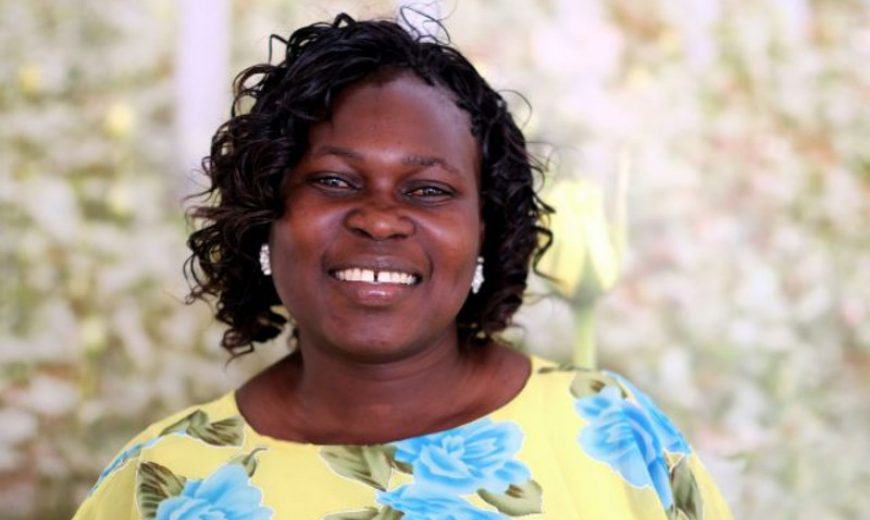Contact the communications team
E-Mail: press@fairtrade.net
8 Mar 2017
This International Women’s Day, we shine a spotlight on the challenges faced by women in the flower industry, and on one Kenyan woman’s quest to make their voices heard.

As a widow and a mother of three sons, Rosemary Achieng is all too aware of the challenges women face to balance the demands of work and family. The 47-year-old is a supervisor at Panda Flowers, a Fairtrade certified farm on the shore of Lake Naivasha in Kenya.
"Being a single parent, a permanent employment contract and a secure income is incredibly important," says Rosemary.
This is especially true in the Kenyan flower industry, where women face daily challenges including low salaries, poor workplace conditions, exposure to pesticides, and discrimination.
"Fairtrade has changed a lot," says Rosemary, who is one of around 450 women in the 900-strong workforce at Panda Flowers. "Women and men now have the same rights. There are regular working hours, fixed leave days, and significantly improved safety regulations."
Working on a Fairtrade certified farm has given Rosemary a home of her own, and two of her sons are now studying at university thanks to bursaries paid for by the Fairtrade Premium.
"I am happy and proud that my sons have been able to study. Fairtrade has had a very positive impact not only on our working conditions, but also on our family life," she says.
Fairtrade Premium projects have also led to benefits for women in the wider community, such as a maternity clinic at Lake Naivasha financed in part by Fairtrade Premium money. Now the women have a safe place to give birth.
More work to be done
This positive picture is far from complete, however. Rosemary knows tough challenges remain, particularly in the area of leadership, where female participation is still low: "We are all the same and anyone who is qualified can become a leader," she says.
Rosemary is more qualified than most: after 13 years in the job she now sits atop the health and safety committee, and was previously head of the gender committee for six years. Fairtrade has established gender committees on each of Kenya’s Fairtrade flower farms.
“The gender committee is so important because it ensures everyone is treated equally,” she explains. “That is especially important for the women workers, as they are often not aware of their rights. I organized trainings to equip them with the relevant knowledge. Now they are much stronger than before.”
Women workers are encountering very deep prejudices on the fringes of the flower industry, too. Fairtrade research on flower farms has revealed that widespread use of casual female labour increases the risk of human rights abuses, discrimination and sexual harassment.
In Kenya and around the world, Fairtrade’s 2016-2020 Gender Strategy seeks to tackle unequal power relations and promote gender equality in producer organizations. The strategy aims to build women’s power and autonomy so they can step up into roles that have traditionally been denied them, and better influence their own situations and conditions.
Fairtrade is also working with local partners to strengthen women’s rights and address issues of harassment. For example, in 2016 Fairtrade Africa, the Kenya Flower Council, and Workers’ Rights Watch launched a model sexual harassment policy for all Kenyan flower farms, a first for the industry.
A voice for Kenyan flower workers
Rosemary hopes that Fairtrade flower sales will continue to increase, so that all flower workers can benefit from better living and working conditions in future.
This hope has carried her to Germany, where she is meeting with campaigners, schools and political representatives, and actively promoting women's rights back home. “I’m looking forward to speaking to the public about my work and the impact of Fairtrade” says Rosemary.
Read more about Fairtrade Germany’s ‘Flower Power’ campaign
E-Mail: press@fairtrade.net